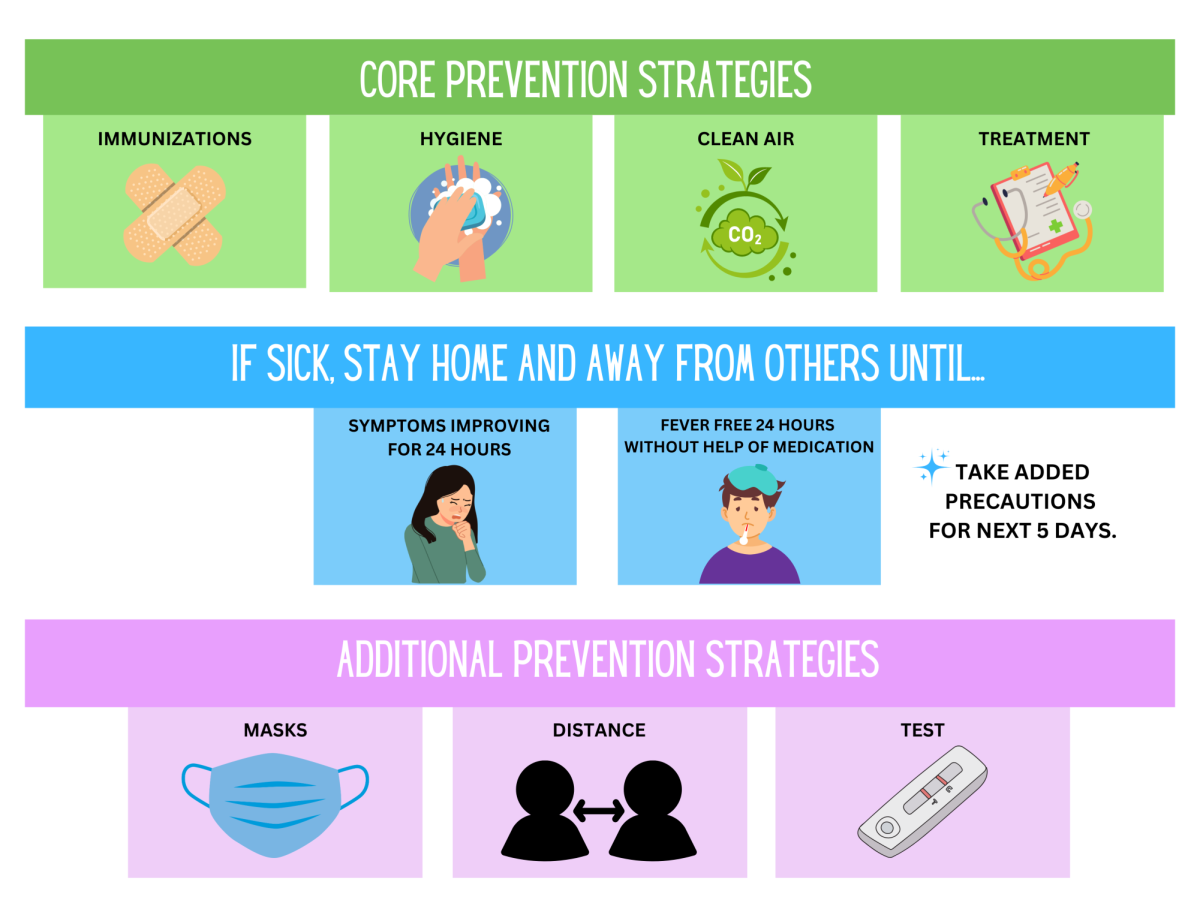When should I test for covid-19?
According to St. Joe’s current covid guidelines, you should get tested when you have “a fever, cough, or shortness of breath, fatigue, muscle or body aches, headache, new loss of taste or smell, sore throat, congestion or runny nose, nausea, vomiting or diarrhea; or contact with a known or suspected COVID-19 case … Symptoms may appear two to 14 days after exposure.”
University guidelines follow the Centers for Disease Control (CDC)’s current recommendation for respiratory viruses, and align with the low number of covid cases and deaths in recent months. In the first three weeks of September, there were only about nine deaths from covid in Philadelphia, according to the city’s covid testing data. Nationally, there were about 2,950 deaths in the same time period, according to CDC data.
What do I do when I test positive for covid?
Stay home and away from others until your symptoms get better. Then, if you feel better and are fever-free without the use of fever-reducing medication, both for 24 hours, you may return to normal activities. Take added precautions like wearing a mask or distancing from others for at least five days.
Adella Dickenson ’25 said she started experiencing symptoms like loss of taste and smell Sept. 26, and immediately tested positive for covid after taking a rapid test the following day. Dickenson said she stayed home from school the first two days after testing, but wasn’t sure of the protocol once she began improving.
“I called the Student Health office, and they said that as long as I don’t have a fever within 24 hours, I can go back to class,” Dickenson said. “I didn’t have a fever, but I still just wanted to stay away from people when I was not feeling well.”
As of April 2023, “the university no longer requires community members to report positive test results.”
What strategies can I use to stay healthy?
Get immunized, according to the CDC and St. Joe’s recommendations.
The CDC also provides guidelines for lowering the risk of all respiratory illnesses, including covid, the flu and respiratory syncytial virus infection (RSV). These recommendations include routine practices like regular handwashing, mindfulness about air flow, masking and social distancing.
Currently, St. Joe’s policy for all faculty, staff and students recommends, but does not require, covid and flu vaccinations.
“The number one recommendation is to get vaccinated,” Eileen Bevilacqua, RN, director of the Student Health Center, wrote in response to written questions from The Hawk. “Immunizations are available for flu, Covid, and RSV (for those who are eligible).”
The Student Health Center is sponsoring a flu vaccine clinic Oct. 10 from 1-5 p.m. in Campion Student Center’s Doyle Banquet Hall South.
















































